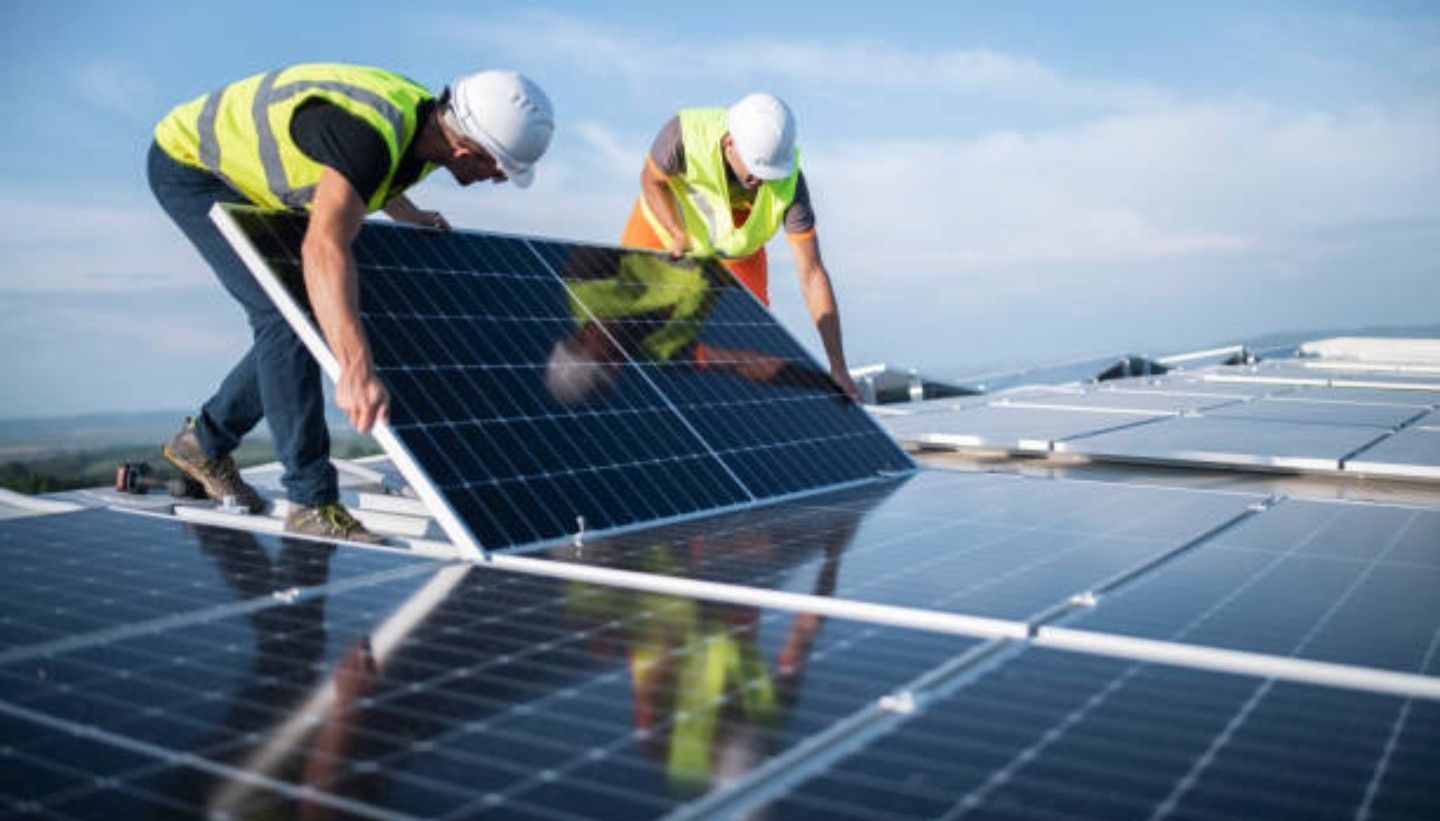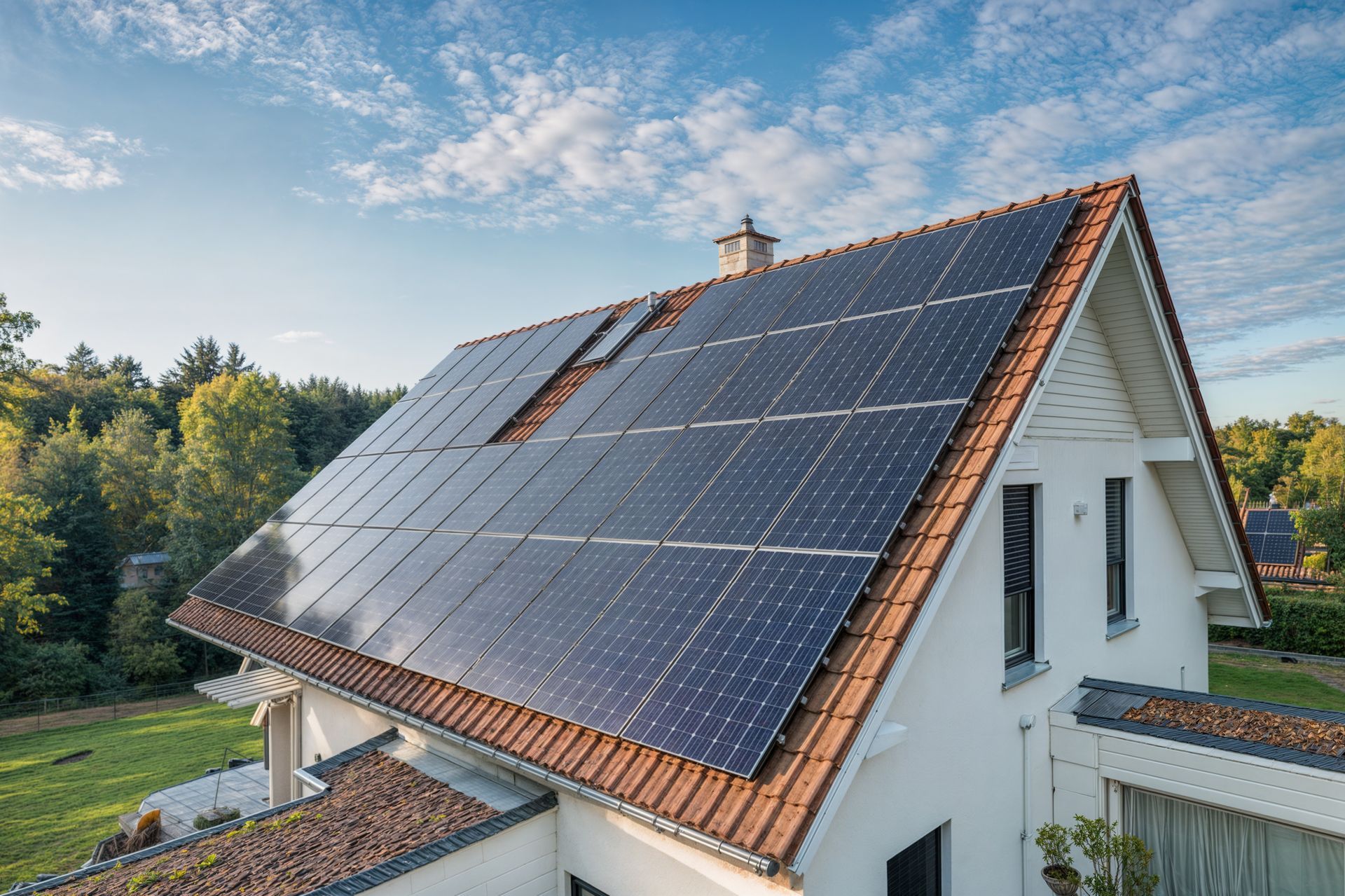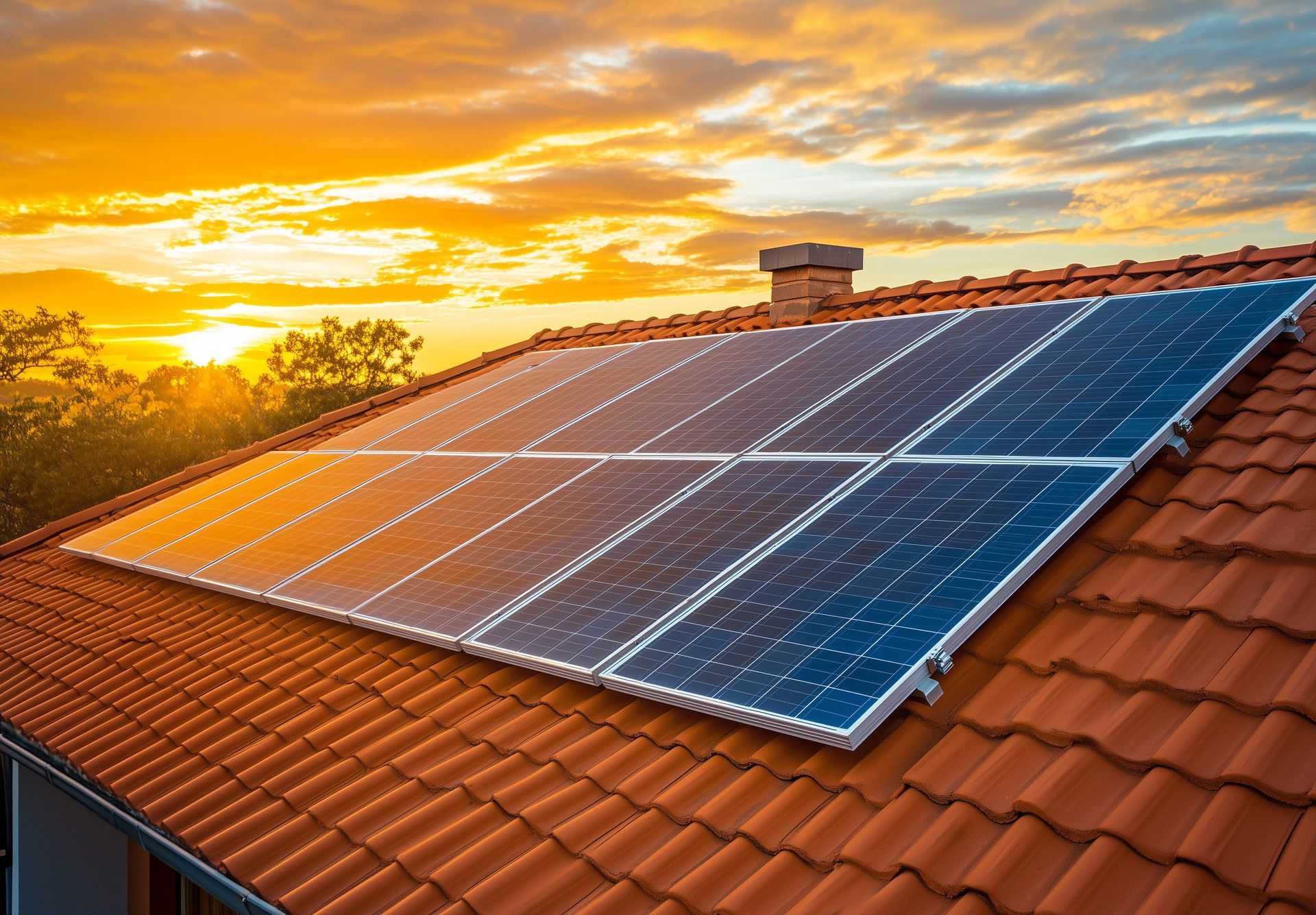The Science Behind Solar Panels: How They Convert Sunlight into Energy
Contact Us
We will get back to you as soon as possible.
Please try again later.
Understanding the Power of Solar Energy

Montana homeowners are increasingly considering solar power as an energy solution, but many still wonder how solar panels actually work. The idea of converting sunlight into usable electricity may seem complex, but the science behind solar energy is both fascinating and efficient.
With Montana’s long summer days and abundant sunlight, solar panels can generate significant electricity, reducing energy bills and promoting sustainability. Even in winter, when temperatures drop and snow covers the ground, solar energy continues to be a reliable power source for homes and businesses across the state.
To understand how solar power MT can benefit Montana homeowners, it’s essential to break down the science of solar energy, explore how photovoltaic (PV) technology works, and examine how solar panels perform in Montana’s unique climate.
How Solar Panels Convert Sunlight into Electricity
Solar panels are made up of photovoltaic (PV) cells, which convert sunlight into electricity through a process known as the photovoltaic effect. This process involves several critical steps that allow solar panels to generate power efficiently.
The photovoltaic effect occurs when photons from sunlight strike the surface of a solar panel. These photons excite electrons in the silicon-based PV cells, creating an electric current. This raw electricity is in the form of direct current (DC) power, which must be converted into alternating current (AC) power before it can be used in a home.
Each solar panel is composed of multiple layers that work together to generate electricity. These layers include:
- The Top Anti-Reflective Coating – Helps absorb as much sunlight as possible rather than reflecting it away.
- The Semiconductor Layer (Silicon Cells) – Where the photovoltaic effect occurs, creating an electric charge when exposed to sunlight.
- The Conductive Layer – Channels the flow of electricity from the solar cells.
- The Protective Glass Layer – Shields the internal components from weather conditions such as snow, hail, and rain.
The electrons freed during the photovoltaic process create a flow of electricity that moves through the solar panel’s conductive layer. However, this electricity must be processed before it can power household appliances.
The Role of the Inverter in Solar Energy Conversion
Since solar panels generate DC electricity, an inverter is required to convert it into AC electricity, which is used by homes and businesses. This conversion process is essential for making solar energy a viable alternative to grid-supplied electricity.
There are two main types of inverters used in solar installations:
- String Inverters – Connects all solar panels in a system to a single inverter, converting electricity for the entire system at once.
- Microinverters – Installed on each individual solar panel MT, optimizing energy conversion on a per-panel basis.
For Montana homeowners, microinverters are often recommended because they allow each solar panel to operate independently. This is particularly beneficial when panels are partially shaded by snow, trees, or roof obstructions, ensuring that the overall system continues to produce power efficiently.
Once converted to AC power, electricity flows into the home’s electrical panel, where it is distributed to outlets, appliances, and lighting. Any excess electricity not immediately used can either be stored in a solar battery or sent back to the utility grid through Montana’s net metering program.
How Solar Panels Perform in Montana’s Climate
Many Montana homeowners wonder whether solar energy is effective in a state known for its cold winters and heavy snowfall. The truth is that solar panels perform exceptionally well in Montana, and in some cases, even better than in hotter climates.
Do Solar Panels Work in Snowy Conditions?
Yes! Solar panels continue generating electricity even in snowy conditions, and several factors contribute to their efficiency:
- Solar panels are designed to absorb heat, which helps melt snow quickly.
- Panels are installed at an angle, allowing snow to slide off naturally.
- Cold weather improves solar panel efficiency, as excessive heat can actually reduce panel performance.
While snow accumulation may temporarily reduce solar production, it rarely lasts long enough to have a significant impact on overall energy generation. Additionally, many homeowners use solar panel snow rakes to gently clear panels when needed.
What About Cloudy Days?
Solar panels can still produce electricity on cloudy days, as they capture diffused sunlight rather than relying solely on direct sun exposure. Montana experiences a high number of sunny days per year, making it an excellent state for solar power.
Energy Storage: How Batteries Improve Solar Efficiency in Montana
For homeowners who want energy independence, a solar battery storage system provides a way to store excess solar energy for use at night or during power outages. This is especially useful for those living in rural Montana, where winter storms or grid failures can leave homes without power for extended periods.
How a Solar Battery Works:
- Stores excess electricity generated during peak sunlight hours.
- Provides backup power at night or during utility outages.
- Helps reduce reliance on the grid, increasing energy independence.
Montana homeowners who install Tesla Powerwall 3 or similar battery storage systems can ensure that they always have reliable power, even when the grid is down. This makes solar energy a practical and secure investment for both urban and rural residents.
The Financial Benefits of Solar Energy for Montana Homeowners
Beyond the scientific and environmental benefits, solar energy is a smart financial investment for homeowners in Montana. By installing solar panels, homeowners can take advantage of several cost-saving opportunities.
Lowering Electricity Bills with Solar Power
By generating your own electricity, you can significantly reduce or even eliminate your monthly energy bills. With Montana’s net metering program, homeowners can receive credits for excess solar energy, further offsetting costs.
Federal and State Solar Incentives
Montana homeowners can benefit from the federal solar tax credit (Investment Tax Credit - ITC), which provides a 30% tax credit on the cost of a solar installation. Additionally, some Montana utility companies offer rebates or incentives for installing solar systems, making it an even more attractive investment.
Increasing Home Value with Solar Panels
Homes equipped with solar panels typically sell for higher prices and more quickly than those without. Buyers are increasingly looking for energy-efficient homes, and a solar installation is a significant selling point that can boost your property’s value.
Is Solar Energy Right for Your Montana Home?
If you’re considering solar power, it’s essential to assess whether your home is a good fit for solar energy. Key factors to consider include:
- Sun Exposure – Homes with south-facing roofs or minimal shading receive the most sunlight.
- Roof Condition – If your roof is older, it may need repairs before installing solar panels.
- Electricity Usage – Homes with high energy bills can see the most significant savings.
With modern solar technology, many homes in Montana are ideal candidates for solar installation, even those with occasional shading or complex roof structures.
Final Thoughts: The Future of Solar Energy in Montana
As the cost of solar energy continues to decrease and incentives remain available, more homeowners in Montana are making the switch to renewable power. The science behind solar panels is simple yet powerful, allowing homes to generate clean energy while reducing dependence on the grid.
For Montana residents looking to save money on electricity, increase home value, and achieve energy independence, solar power is an excellent solution. Whether you’re considering a grid-tied system with net metering or off-grid solar with battery storage, there has never been a better time to invest in renewable energy.
If you’re ready to explore solar options for your home, Ellingson Solar offers expert installation and consultation services. Contact us today to learn how solar energy can work for your Montana home and start your journey toward energy independence.
Contact Ellingson Solar today! Upgrade your home with solar and start saving today! Inquire for free quotes & financing options.
Contact Us
We will get back to you as soon as possible.
Please try again later.

